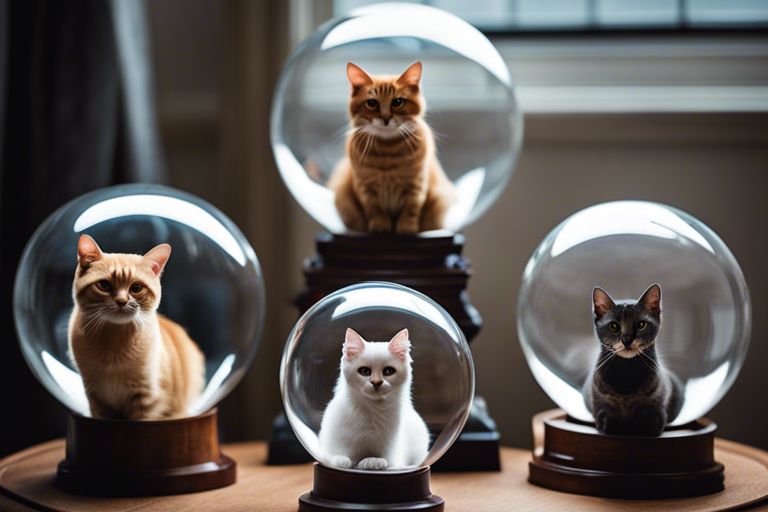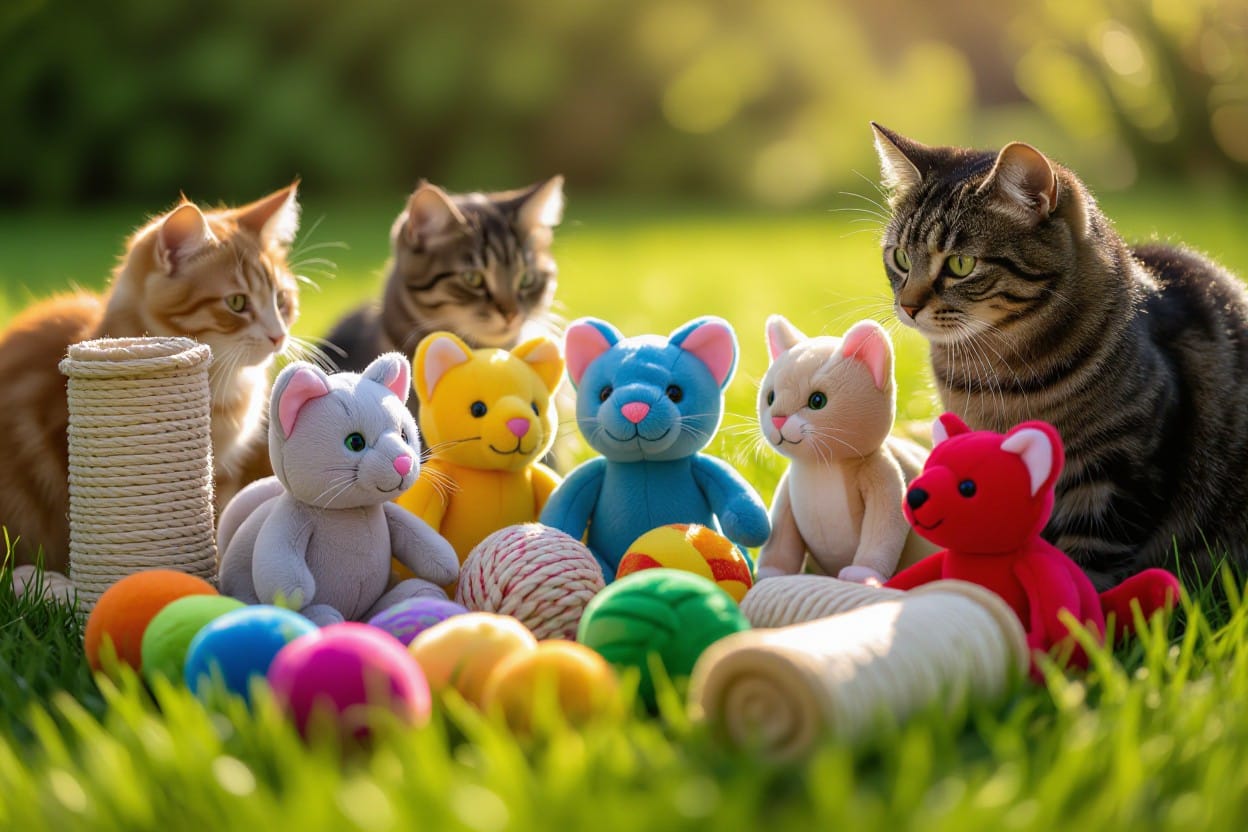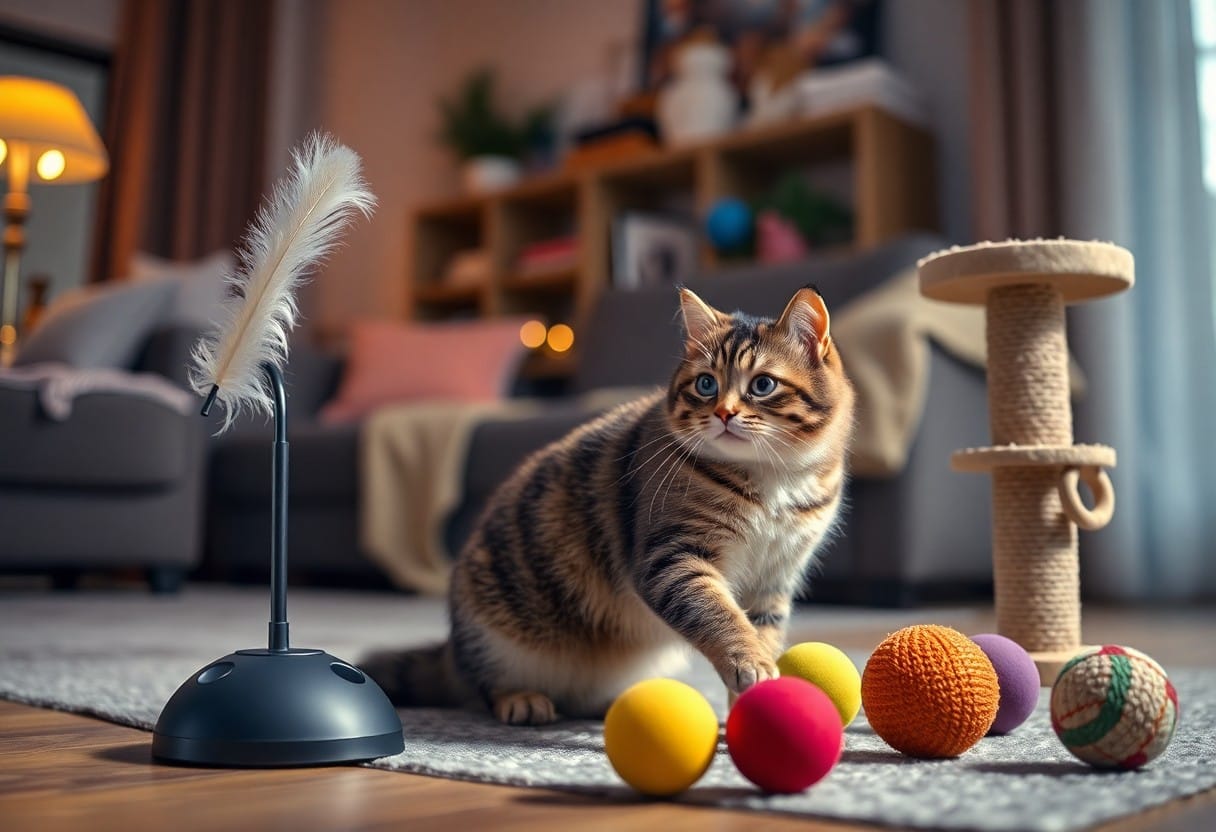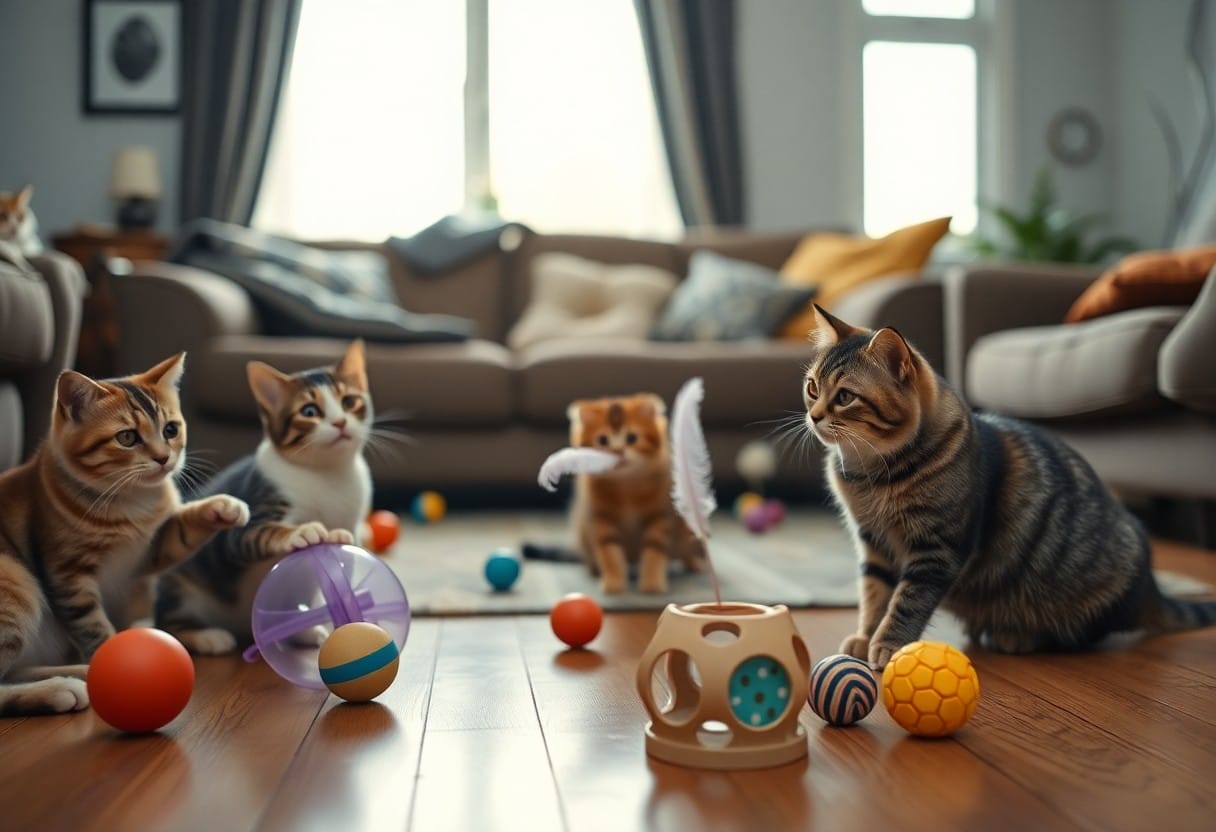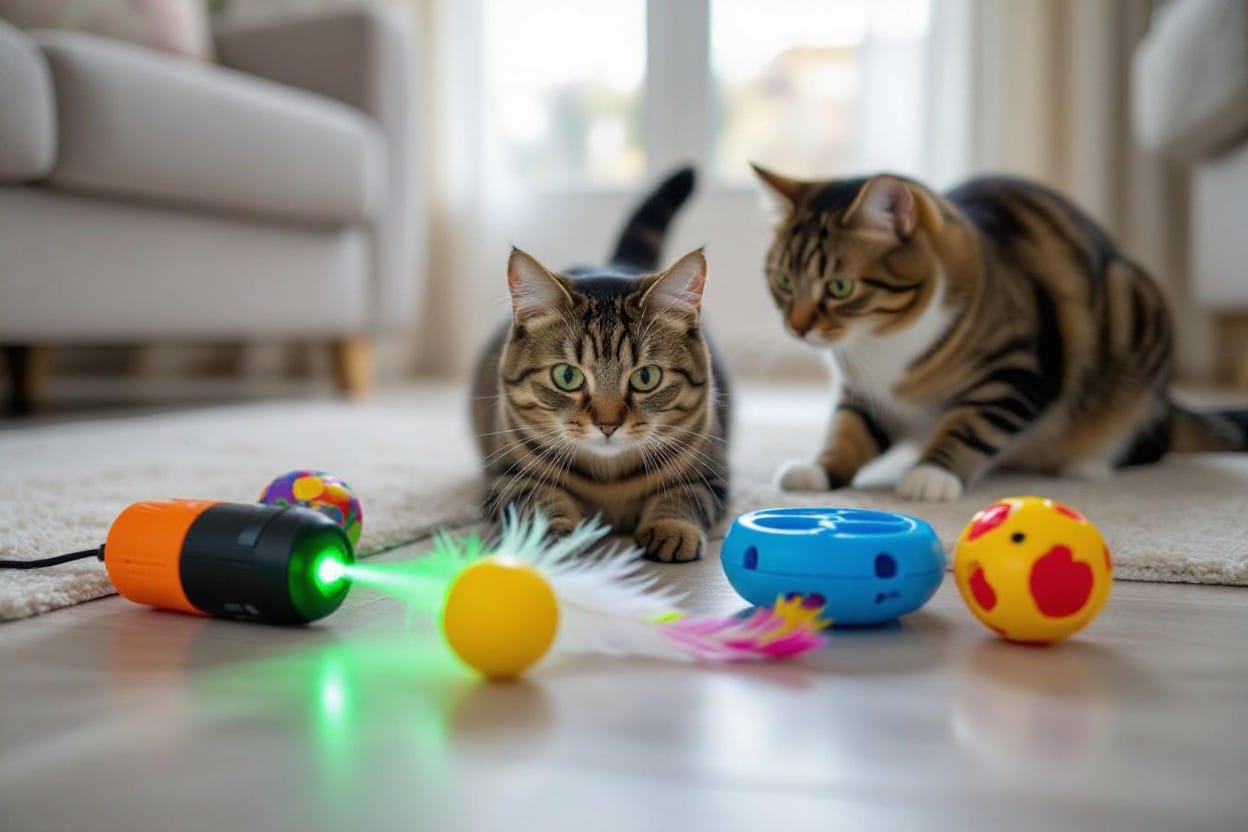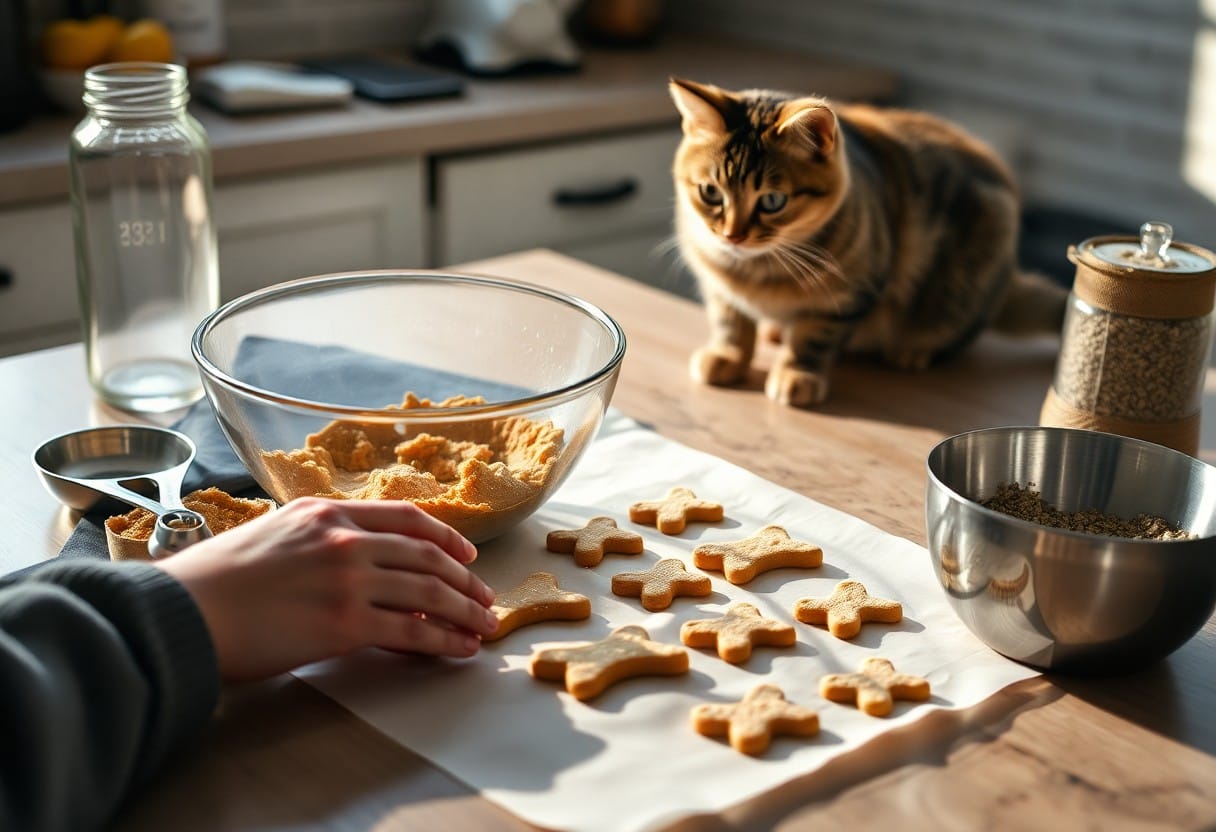Most cat lovers can agree that choosing a feline companion is a significant decision. With so many breeds to choose from, it can be overwhelming to pick the one that best suits your lifestyle. From playful and energetic to calm and aloof, each breed has its unique characteristics that make them special. In this blog post, we will explore some of the most popular cat breeds and help you find the perfect match for your lifestyle.
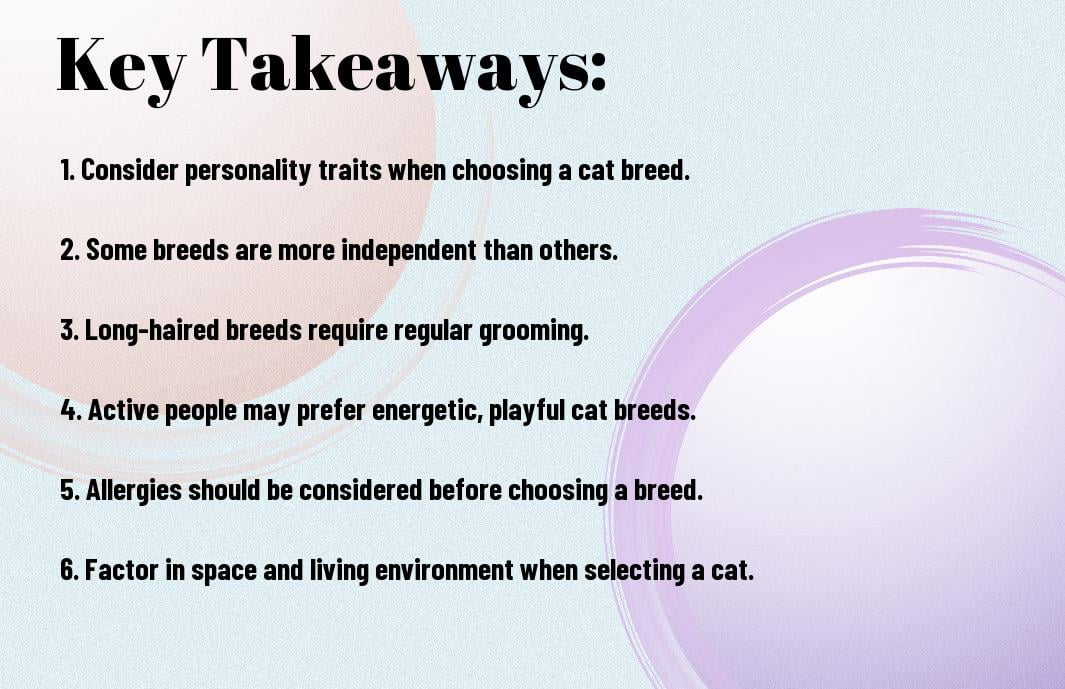
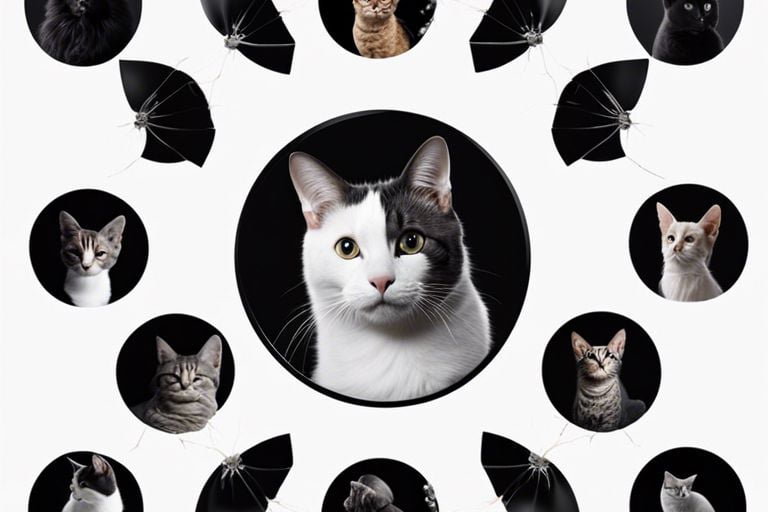
Understanding Cat Breeds
If you’re considering welcoming a feline companion into your home, understanding cat breeds can help you find the best match for your lifestyle and preferences. By delving into the history of domesticated cats and the concept of breed and lineage, you can gain insight into the characteristics and traits associated with different types of cats.
History of Domesticated Cats
Cats have a long history of association with humans, dating back thousands of years. While they were originally valued for their hunting abilities, cats eventually became cherished companions. The domestication of cats is believed to have started in ancient Egypt, where they were revered and even worshipped. From there, cats spread to other parts of the world through trade and exploration, solidifying their place in different cultures and societies.
The Concept of Breed and Lineage
Conceptually, a cat breed is a group of cats that share common physical traits, behaviors, and sometimes lineage. Breeds are typically developed through selective breeding to emphasize desirable characteristics such as coat color, pattern, or personality traits. Lineage refers to the ancestry or genealogy of a cat, tracing back to its purebred or mixed ancestry. Understanding the concept of breed and lineage can help prospective cat owners choose a cat that aligns with their preferences and lifestyle.
Categories of Cat Breeds
Purebreds versus Mixed Breeds
For cat enthusiasts looking to bring a feline friend into their home, one of the first decisions to make is whether to choose a purebred or a mixed breed cat. Purebred cats are bred to conform to specific breed standards and typically have predictable traits in terms of appearance, temperament, and grooming needs. On the other hand, mixed breed cats, also known as domestic shorthairs or domestic longhairs, come from a more varied genetic background, making them unique individuals with diverse characteristics.
Recognized Cat Breed Classifications
An imperative aspect of exploring different cat breeds is understanding the recognized cat breed classifications. Cat breeds are typically categorized into various groups based on similarities in characteristics such as coat type, body structure, and facial features. The major recognized cat breed classifications include the Persian, Siamese, Maine Coon, and many others, each with its distinct traits and personalities.
This categorization not only helps potential cat owners narrow down their search for the perfect feline companion but also provides insights into the common traits and care requirements associated with specific cat breeds.
Popular Cat Breeds and Their Traits
Siamese: Social and Communicative
For cat lovers looking for a social and chatty feline companion, the Siamese breed might be the perfect match. The Siamese cats are known for their affectionate nature and love for attention. They are highly vocal and will not hesitate to communicate with their owners through a series of distinctive meows and purrs.
Persian: Quiet and Plush
One of the most popular cat breeds, the Persian cat is loved for its quiet and docile demeanor. These fluffy felines have luxurious long coats that require regular grooming to keep them looking their best. Persians are known for their calm and laid-back personalities, making them great indoor companions.
Breeds that require grooming and prefer a serene environment will find the Persian cat to be a delightful addition to their homes.
Maine Coon: Large and Affectionate
Breeds that enjoy the company of a large, affectionate cat may find the Maine Coon to be the perfect match. These gentle giants are known for their friendly and sociable nature. Maine Coons are also playful and intelligent, making them great companions for families and individuals alike.
To those looking for a cat that enjoys interaction and has a loving personality, the Maine Coon breed is an excellent choice.
Ragdoll: Docile and Gentle
One of the most easy-going and gentle cat breeds, the Ragdoll is known for its docile nature and affectionate temperament. Ragdolls get their name from their tendency to relax and go limp like a ragdoll when held, making them great lap cats. They are also known for their striking blue eyes and plush fur coats.
Bengal: Energetic and Exotic
Persian cats are known for their striking appearance, which resembles that of a wild leopard. Their energetic and playful nature makes them excellent companions for active individuals who are looking for a lively and exotic feline friend.
Their unique coat patterns and athleticism make Bengals a favorite among cat enthusiasts who enjoy a more active and engaging pet.
British Shorthair: Calm and Companionable
Breeds that seek a low-maintenance yet affectionate companion will find the British Shorthair cat to be an ideal match. Known for their calm and laid-back personalities, British Shorthairs are easy-going and adaptable to various environments. They are loyal and loving pets, making them great companions for households of all types.
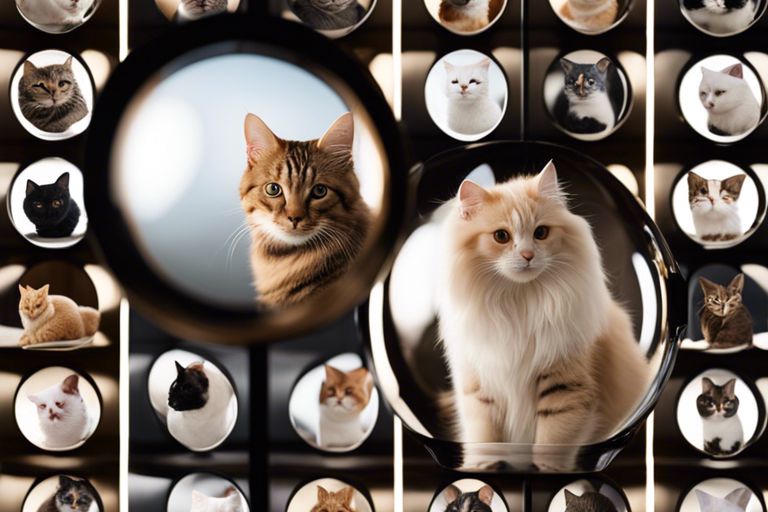
Selecting a Breed for Your Lifestyle
Assessing Your Living Space
Space is a crucial factor to consider when choosing a cat breed that suits your lifestyle. Some breeds, like the Maine Coon or the Ragdoll, are larger and more suited to homes with plenty of room to roam. Others, such as the Siamese or the Devon Rex, are more adaptable to smaller living spaces like apartments. Consider the layout and size of your home before selecting a breed to ensure that your cat will be comfortable in their environment.
Understanding Time Commitment and Energy Levels
Assessing the time and energy you have available to dedicate to a cat is imperative in choosing the right breed. Some breeds, like the Bengal or the Abyssinian, are more high-energy and require lots of playtime and stimulation. On the other hand, breeds like the British Shorthair or the Persian are more laid-back and independent. Make sure to match the cat’s energy levels with your own to ensure a harmonious relationship.
Plus, keep in mind that certain breeds may have specific needs that require extra time and attention, such as grooming or socialization. Be realistic about your schedule and abilities to meet the needs of your chosen breed.
Grooming Needs and Allergies
Your cat’s grooming needs and any potential allergies should also be taken into consideration when selecting a breed. Breeds like the Siberian or the Balinese are known for producing fewer allergens and may be suitable for those with allergies. On the other hand, long-haired breeds like the Persian or the Himalayan require regular grooming to prevent matting and tangles.
To ensure a happy and healthy relationship with your cat, choose a breed that aligns with your grooming abilities and any potential allergies present in your household.
Interactions with Children and Other Pets
To promote a harmonious household, consider how a cat breed will interact with any children or other pets in your home. Breeds like the Maine Coon or the Ragdoll are known for being gentle and sociable with children and other animals. On the other hand, breeds like the Scottish Fold or the Russian Blue may be more reserved and better suited to quieter environments.
Living peacefully with a cat breed that complements your family dynamics will ensure a happy and enriching experience for both you and your pets.
Care and Maintenance Across Breeds
Despite the diverse range of breeds, all cats require proper care and maintenance to ensure their health and well-being. Understanding the specific needs of different breeds can help cat owners provide tailored care for their feline companions.
Nutritional Needs of Different Breeds
An necessary aspect of caring for cats is meeting their nutritional needs. Different breeds may have varying dietary requirements based on factors such as size, activity level, and health considerations. For example, larger breeds like Maine Coons may require a diet rich in protein to support their muscle growth and energy levels, while breeds prone to certain health issues may benefit from specialized diets tailored to their needs.
Health Considerations and Veterinary Care
Health is a fundamental concern when it comes to caring for cats of different breeds. Regular veterinary check-ups are crucial to monitor your cat’s overall health and address any potential issues promptly. Additionally, certain breeds may be predisposed to specific health conditions, such as Persians with respiratory problems or Siamese with dental issues.
Different breeds may have unique health considerations that owners should be aware of. For example, hairless breeds like the Sphynx may require special attention to their skin health, while flat-faced breeds like the Persian may be more prone to respiratory issues. Understanding these breed-specific health concerns can help owners provide the best possible care for their feline companions.
Adoption and Responsible Breeding
Finding Reputable Breeders
To ensure you are getting a healthy and well-bred cat, it is crucial to find reputable breeders. Responsible breeders prioritize the health and well-being of their cats over profit. They will provide proper veterinary care, socialization, and a suitable living environment for their breeding cats and kittens. When looking for a breeder, visit their facilities in person to see the conditions the cats are living in. Ask about genetic testing, vaccination records, and any health guarantees they offer. A reputable breeder will be transparent and open to answering all your questions about their breeding practices.
The Benefits of Cat Adoption and Rescue
Rescuing a cat from a shelter or adopting from a rescue organization not only saves a life but also provides a loving home to a deserving cat. Shelter cats come in all breeds, ages, and personalities, making it possible to find the perfect match for your lifestyle. Additionally, adopting a cat is often more cost-effective than buying from a breeder, as adoption fees usually include spaying/neutering, vaccinations, and microchipping. By choosing adoption, you are giving a cat a second chance at a happy and fulfilling life.
Adopting a cat from a shelter or rescue organization is a rewarding experience that not only enriches your life but also helps reduce the number of homeless cats in need. When you adopt, you are making a compassionate choice that positively impacts both the cat you bring into your home and the animal welfare community as a whole.
Summing up
On the whole, exploring the different breeds of cats is important in finding the perfect match for your lifestyle. Each breed comes with its unique characteristics, temperament, and care requirements. By understanding these differences, you can choose a cat that fits seamlessly into your home and meets your expectations as a pet owner.
Whether you prefer a playful and affectionate breed like the Abyssinian or a laid-back companion like the Ragdoll, there is a cat breed out there for everyone. Take the time to research and consider your lifestyle, living situation, and expectations to ensure a successful and fulfilling relationship with your feline companion. Do not forget, each cat is an individual with its own personality, so be open to finding the perfect match based on compatibility and connection, rather than solely on breed characteristics.
FAQ
Q: What are the different breeds of cats available for adoption?
A: There are numerous cat breeds to choose from, including popular breeds like Siamese, Maine Coon, Persian, Bengal, and Ragdoll, each with unique characteristics and personalities.
Q: How do I choose the right cat breed for my lifestyle?
A: Consider factors such as the cat’s activity level, grooming needs, temperament, and compatibility with children or other pets to find a breed that aligns with your lifestyle.
Q: What should I consider when adopting a specific cat breed?
A: Research the breed’s specific care requirements, such as grooming, exercise, and health considerations, to ensure you can provide the necessary care for your chosen cat.
Q: Are certain cat breeds more suitable for apartment living?
A: Yes, some cat breeds, like the Sphynx, Russian Blue, and Scottish Fold, adapt well to apartment living due to their lower activity levels and grooming needs.
Q: How can I learn more about different cat breeds before making a decision?
A: Utilize online resources, visit cat shows, talk to breeders, and consult with veterinarians or animal shelters to gather information and insights on various cat breeds before making a decision.
